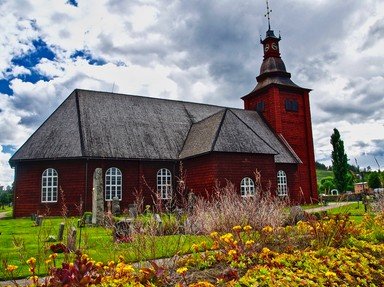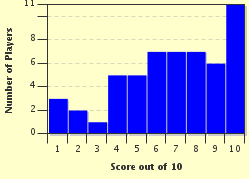Quiz Answer Key and Fun Facts
1. Which Swedish king founded Helsinki, then called Helsingfors, in 1550 so he could have a rival city to Reval (now Tallinn, Estonia), in the Hanseatic League?
2. Helsinki, then called Helsingfors, was founded in 1550. Its slow start finally began to speed up in 1748 with the construction of Sveaborg, a series of island fortresses that is today called what?
3. Helsinki, then called Helsingfors, was founded in 1550. It didn't really began to grow and become powerful until Sweden lost Finland in the Finnish War (1808-1809), to what power?
4. Which city, which was nearly destroyed in an 1827 fire, was the capital of Finland before it was moved to Helsinki in 1812?
5. In the middle of the 19th century, Helsinki became the center for strife between the Fennomans (aided by Russian bureaucrats) and the Svecomans, over what?
6. Who was the Russian Governor-General of Finland, who was assassinated in Helsinki in 1904, amidst growing tensions between the Finns and the Russians?
7. The Hotel Torni (built in 1931) was Finland's tallest building until 1987. It was the headquarters of what during World War II?
8. The Elaintarhan ajot was what kind of sporting competition that ran from 1932 until 1963?
9. Which of the following was NOT one of the principles agreed upon at the 1975 Helsinki Accords, which sought to improve relations between the Soviet Union and the western world, including Europe and North America?
10. What event did Helsinki host for the first time in 2007 at the Hartwell Arena?
Source: Author
Joepetz
This quiz was reviewed by FunTrivia editor
gtho4 before going online.
Any errors found in FunTrivia content are routinely corrected through our feedback system.

